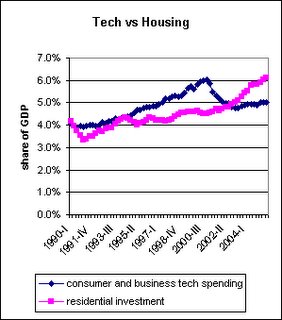Just How Far Can New Jersey Home Prices Fall?
Saying Northern New Jersey home prices are poised to fall 30% is certainly going out on a ledge, however, it seems I'm not the only one who has calculated figures in that range.
Most overvalued housing markets
Sixty-five of the nation's 299 biggest real estate markets are severely overpriced and subject to possible price corrections.
That's according to the latest (third quarter) Housing Market Analysis conducted by National City Corp, a financial holding company, in conjunction with Global Insight, a financial information provider.
...
National City arrives at its estimates of what the typical house in these markets should cost by examining the town's population densities, local interest rates, and income levels. It also factors in historical premiums and discounts for each area.
Overvalued Markets
Atlantic City, NJ 59%
Ocean City, NJ 47%
Edison, NJ 31%
Newark, NJ-PA 27%
New York, NY-NJ 27%
Trenton, NJ 20%
Wilmington, DE-MD-NJ 18%
Camden, NJ 18%
Allentown, PA-NJ 13%
For those of you that might not grasp exactly what a 30% reduction in home prices locally will mean. Take a home that is typically selling for $500,000 in this area, I'm sure I know exactly what image pops into everyones head. It's a 40 year old cape that hasn't been touched on a postage stamp lot, or even worse. Well, reduce that price by 30% and you'll get what I think the true value of the home is, $350,000. Still expensive? Sure it is, this isn't Oklahoma, we pay a premium to live in this area, but then again, we always have, nothing changed recently.
Caveat Emptor,
Grim

